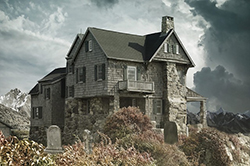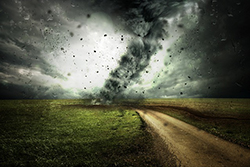 Your nonprofit organization specializes in serving and helping others. A lawsuit or other liability could inhibit your organization’s ability to continue operations, though. You need a nonprofit commercial package with invaluable protection that meets your needs as you help others.
Your nonprofit organization specializes in serving and helping others. A lawsuit or other liability could inhibit your organization’s ability to continue operations, though. You need a nonprofit commercial package with invaluable protection that meets your needs as you help others.
What a Nonprofit Commercial Package Includes
The right insurance provides invaluable protection for your organization. Look for several types of coverage when shopping for a nonprofit commercial package.
-
- General Liability Insurance
When visitors or clients are injured from a fall, slip or accident on your property, your organization is liable for medical payments and other damages. General liability insurance offers classic slip-and-fall coverage for any unfortunate accidents.
- General Liability Insurance
-
- Property Insurance
Natural disasters, fires, vandalism and other risks can happen at any time. Property insurance pays for necessary repairs and minimizes operation disruptions to the property your organization owns or rents. This insurance can cover:
- Computers and accessories
- Equipment and machinery
- Fixtures, including carpeting and lighting
- Inventory and supplies
- Office furniture
- Property Insurance
-
- Auto Insurance
Any time your staff or volunteers drive a company or personal vehicle for organization activities, your nonprofit is liable for accidents or damages. Purchase adequate auto insurance that includes liability and any coverage your state requires, such as personal injury protection or uninsured/underinsured motorist coverage.
- Auto Insurance
-
- Product Liability Insurance
Your nonprofit may sell products to raise funds for your cause. Examples include items your clients create or baked goods. Property liability insurance protects your organization financially if someone suffers an injury or other damages because of a product you sell.
- Product Liability Insurance
-
- Directors and Officers InsuranceNonprofit organizations rely on the leadership expertise of directors and officers. These men and women could be sued for fraud, financial mismanagement or other things, though. Directors and Officers insurance covers defense and damage costs.
-
- Professional Liability Insurance
When someone files a discrimination, mismanagement or sexual harassment lawsuit against your organization, the nonprofit is liable for related costs and damages. Professional liability insurance, also known as errors and omissions or malpractice insurance, is similar to Directors and Officers insurance but covers your entire organization, including staff and volunteers.
- Professional Liability Insurance
In addition to these six coverage options, your nonprofit commercial package may include:
- Abuse Liability
- Cyber Liability
- Loss of Business Income
- Misconduct
- Negligence
- Special Event Insurance
- Umbrella Coverage
- Volunteer Medical Expense Coverage
- Workers’ Compensation
Your organization needs customized insurance that meets your needs, fits your budget and protects your assets. Contact your insurance agent today for a customized quote and more information on the Nonprofit Commercial Package that’s right for you. It provides invaluable protection that allows you to address risks while continuing to serve others.








